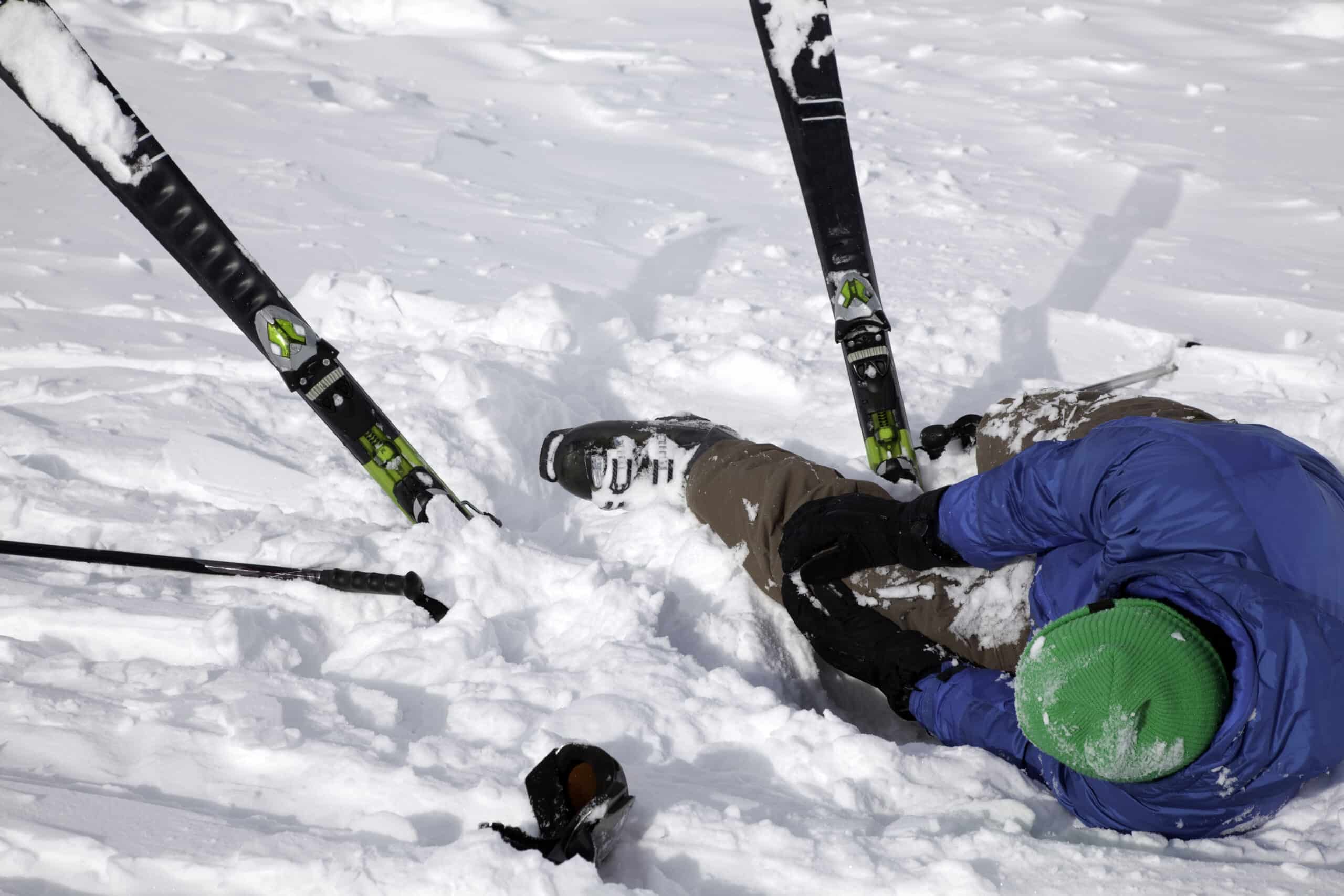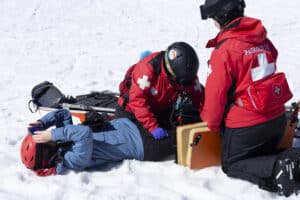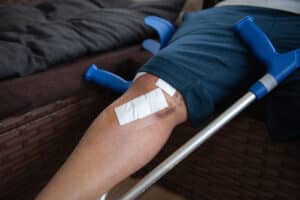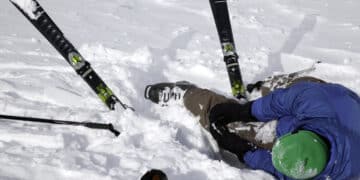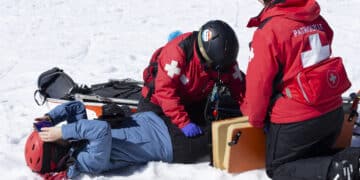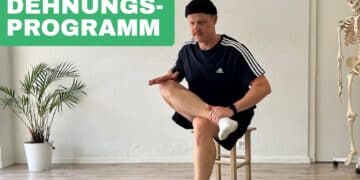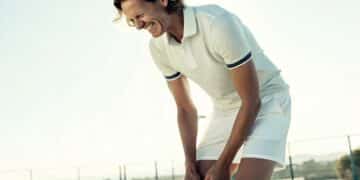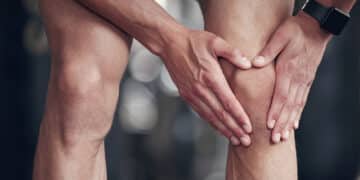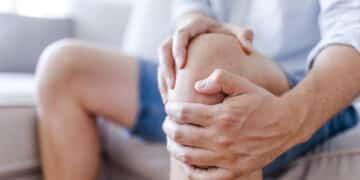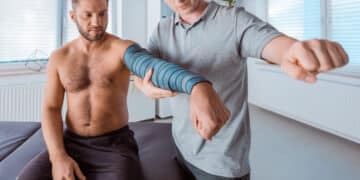The way back to sport in Zurich
Your way back to sport after a cruciate ligament rupture
One wrong step, an abrupt turn, a cracking sound in the knee - and suddenly the world comes to a standstill for every ambitious athlete. The diagnosis of a torn anterior cruciate ligament (ACL rupture) is one of the most serious knee injuries and often means a month-long forced break for footballers, skiers and other athletes. But the injury doesn't have to mean the end of a passion for sport.
With a structured rehabilitation plan and professional physiotherapy support, getting back on the football pitch in Zurich or the ski slopes in the Alps is not only possible, but can even get you back stronger than before.
This guide shows you what to expect during cruciate ligament rehabilitation and the crucial role that sports physiotherapy plays on your way back.
Cruciate ligament rupture - more than just a knee injury
The anterior cruciate ligament is a central stabilizer in the knee joint. It prevents the lower leg from moving forward in relation to the thigh. Typical injury mechanisms are sudden stops, rapid changes of direction or twisting of the knee with the foot fixed - movements that are commonplace in football and skiing.
A rupture of the anterior cruciate ligament leads to instability, swelling and pain and is usually surgically replaced with a graft (e.g. a piece of the patellar or hamstring tendon) in people who are active in sport. However, the operation is only the first step. The real work begins afterwards: rehabilitation.
Rehabilitation after cruciate ligament rupture - back to sport
The way back: the phases of rehab after cruciate ligament surgery
A successful Cruciate ligament rupture rehab in Zurich follows a clear, phase-based plan. Each phase has specific goals, and the transition to the next only takes place once these have been safely achieved.
Phase 1: Protection and early mobilization (approx. week 1-4)
In the first few weeks after the operation, the focus is on wound healing and protecting the new cruciate ligament.
- Goals: Reduce swelling and pain, regain full extension of the knee, reactivate the thigh muscles (quadriceps) and safely master walking on crutches.
- Importance of physiotherapy: Your physiotherapist is your most important companion during this critical phase. Manual lymphatic drainage reduces the swelling. Gentle, passive movement exercises ensure that the joint does not become stiff. We will show you essential initial exercises, such as tensing the thigh while lying down to counteract muscle loss, and guide you to walk correctly on crutches.
Phase 2: Strength and control build-up (approx. week 5-12)
As soon as the initial healing has progressed, the systematic development of the muscles that stabilize the knee begins.
- Goals: Achieve a normal, fluid gait pattern without crutches, build up strength in the leg and trunk muscles and improve coordination and balance (proprioception).
- Importance of physiotherapy: This is the core phase of the Physiotherapy after cruciate ligament surgery. We create an individual training plan with exercises such as squats, lunges and leg presses, paying meticulous attention to correct execution so as not to overload the new ligament. Balance exercises on unstable surfaces train the interaction of nerves and muscles and give your knee back the ability to react safely on uneven surfaces.
Phase 3: Dynamics and sport-specific preparation (approx. months 3-6)
Now it becomes more dynamic. The training is gradually adapted to the loads of your sport.
- Goals: Start of running and jumping training, improvement of speed and agility, introduction of sport-specific movement patterns.
- Importance of physiotherapy: Under our supervision, you will make your first attempts at running in a safe environment. We will introduce you to plyometric training (jumping exercises) to restore the knee's ability to withstand impact. Agility exercises such as quick changes of direction and sideways steps will prepare you specifically for the demands of football or skiing.
Phase 4: Safe return to sport (from approx. month 6-9+)
The final and often most challenging phase is full reintegration into sport.
- Goals: Participation in team training, regaining full confidence in the knee, passing "return-to-sport" tests.
- Importance of physiotherapy: Before you get the green light to return to the court, we carry out a series of standardized tests. These objectively measure strength, jumping height and stability in a side-by-side comparison. Only if there are no more relevant deficits here is a safe return to sport guaranteed. Studies show that the rate of return to the old sporting level for amateur athletes is only around 65 %, which underlines the importance of professionally guided rehabilitation. We will accompany you during your first training sessions and help you to gradually increase your workload.
The mind plays along: The psychological challenge
The road back after a cruciate ligament rupture is not only a physical test, but also an immense mental one. Fear of re-injury, frustration at slow progress and impatience are constant companions. A good physiotherapist is also a mental coach during this time. We help you to set realistic goals, celebrate small successes with you and give you the confidence you need to regain trust in your knee and your body.
Your individual rehab plan at Physio Waidfuss in Zurich
Every athlete and every injury is unique. A standardized plan will not do justice to such a complex injury. If you are looking for a competent Sports physiotherapy in Zurich that accompanies you on your way back, you've come to the right place.
We create a customized, phase- and goal-oriented rehab plan that is tailored to your individual needs and your sport. We work together to ensure that you return to the court not only safely, but also strong and confident.
Take the first step. Contact us for a comprehensive consultation and the creation of your personal rehabilitation plan.
Book your Date online or call us on 044 585 99 49. We look forward to accompanying you on your way back to sport!
After the cruciate ligament rupture: The way back to sport in Zurich
Your way back to sport after a cruciate ligament rupture A wrong step, an abrupt turn, a cracking sound...
Read moreKnee injury after accident what to do?
After the accident: How physiotherapy helps with knee and leg injuries in Zurich Wipkingen The way back to full fitness is...
Read moreStretching program
Your stretching program Stretching is an essential foundation for your mobility and well-being....
Read moreBursitis of the knee: causes, symptoms and treatment options
What is inflammation of the bursa (bursitis) in the knee? An inflammation of the bursa, also known as bursitis, is a...
Read morePatella tip syndrome
Patellar tendinopathy: Pain in the knee - Effective treatment at Physiotherapie Waidfuss Patellar tendinopathy is a...
Read moreKnee pain - why it occurs and how you can relieve it
Everything you need to know about knee pain: Causes and treatment options Knee pain is a common...
Read moreOsteoarthritis - what you should know about the joint disease
What is osteoarthritis? Osteoarthritis is a widespread degenerative joint disease caused by the wear and tear of cartilage tissue.
Read moreFlossing for scar treatment: Innovative, effective and supportive
Have you ever heard of flossing? This innovative physiotherapy technique is becoming increasingly popular,...
Read more
